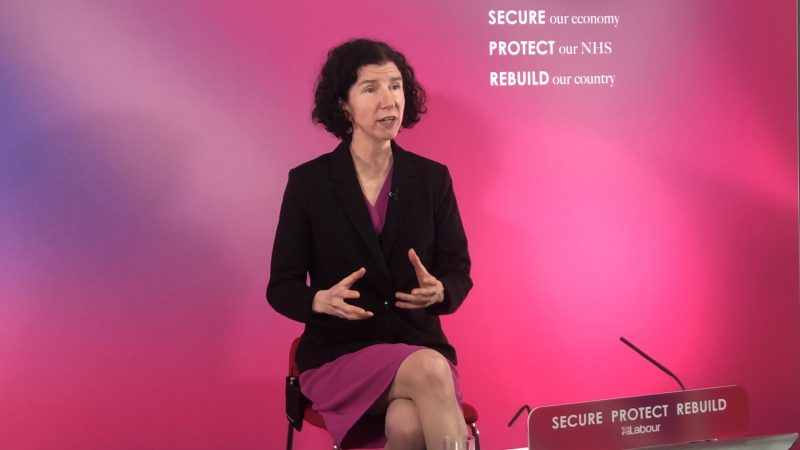
I’m quite new to the Labour Party. I only returned to England in late 2019 after a decade abroad teaching English and, due to an unforeseen pandemic of global upheaval, have barely campaigned. But one central message keeps coming back from people on the doorstep when I have: they don’t know what Labour stands for. Anneliese Dodds seems determined to change that.
Over the summer, our new party chair ran a series of policy roundtables called ‘Stronger Together’. I received an invite to these events in late July where I could put myself forward for six policy areas. I signed up for four of them. We were asked what Britain would be like in the context of the topic by 2030, and what three things Labour should seek to do in the policy area for the next general election. I attended Better Jobs and Better Work, A Future Where Families Come First, Britain in the World and A Green and Digital Future.
I’m not a stranger to policy. I’m a recent graduate from a Public Policy MSc, policy officer for Brighton Kemptown CLP, and just started work in policy with East Sussex County Council. I have a lot of opinions and thoughts about a lot of different issues, and was glad for the opportunity to share some of them with frontbench MPs, Labour mayors and councillors circulating through the breakout rooms.
The events started with these prominent Labour representatives sharing their successful initiatives throughout the country. Besides the strong sense that the future is Labour, what instantly struck me when attendants were split into breakout rooms was their diversity. From PhDs to retirees, non-profit startups to teaching assistants, everyone had a chance to feed into reports being tirelessly notated by the events team, and then fed back to the room, and, crucially, future policy.
The fact is that in the UK we have a strong policy-making culture, with think tanks like the New Economics Foundation and IPPR, besides advocacy groups like the Runnymede Trust and Positive Money. They all produce extraordinary research and assiduously campaign for much-needed change. But as the best of these organisations realise, policy must be something made with people, not done to them. The way the Stronger Together roundtables were organised attests to the same realisation.
The optimism, clarity of thought and bright ideas for positive change reverberating from everyone’s contributions gives me hope for a future Labour government, even if there were dire prognostications about the future with a Tory one. It was demanding work for the events team to get everyone’s ideas, from job guarantees to bridging the digital divide, or how all policy needed to intersect with the environment and racial justice. But the events were well-organised to facilitate such a wealth of contributions from members.
A Future Where Families Come First was especially well-timed and, while it was always a challenge in every event to get around everyone in the room, this one really nailed it. This was also where everyone agreed that rebuilding communities needed to be central to future policy. My own contribution around 20-minute neighbourhoods got positive feedback, and I ended up collaborating with a member I met that evening on a submission to Labour’s national policy forum.
As Anneliese Dodds proved with these events, the Labour Party is stronger together when it actively engages its members. With party conference around the corner, and the reality that some members are hanging by a thread, these events boosted my faith in Labour. They’ve led me to believe that Labour does know what it stands for, but only because it’s listening to its members. And according to these events alone, the members definitely know what they stand for.
We will fix this country with a Labour government. A party willing to listen to people will prove that we’re stronger together as a nation, that we have far more in common than in difference, and collectively all the solutions we need to thrive in the 21st century, despite the many challenges already thrown at us.



More from LabourList
Key local council elections to watch for clues on our general election chances
Andy Burnham manifesto: Greater Manchester mayor reveals three key election pledges in bid for third term
‘Labour should grasp the chance to secure EU visa deal for young workers’